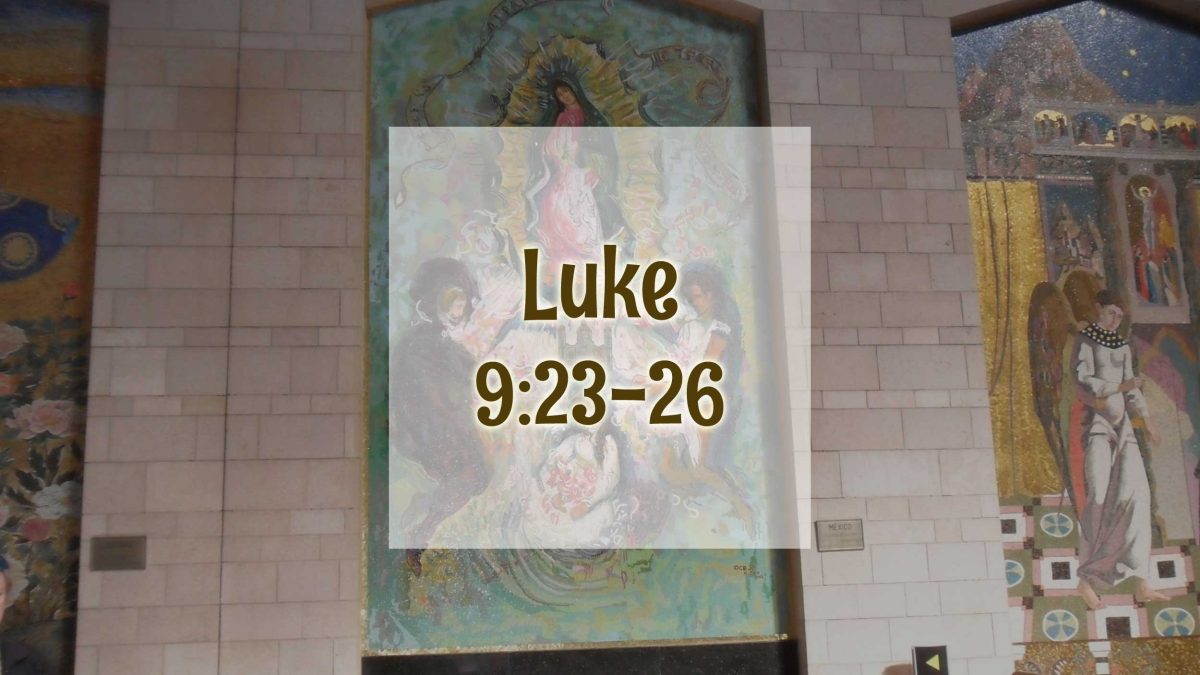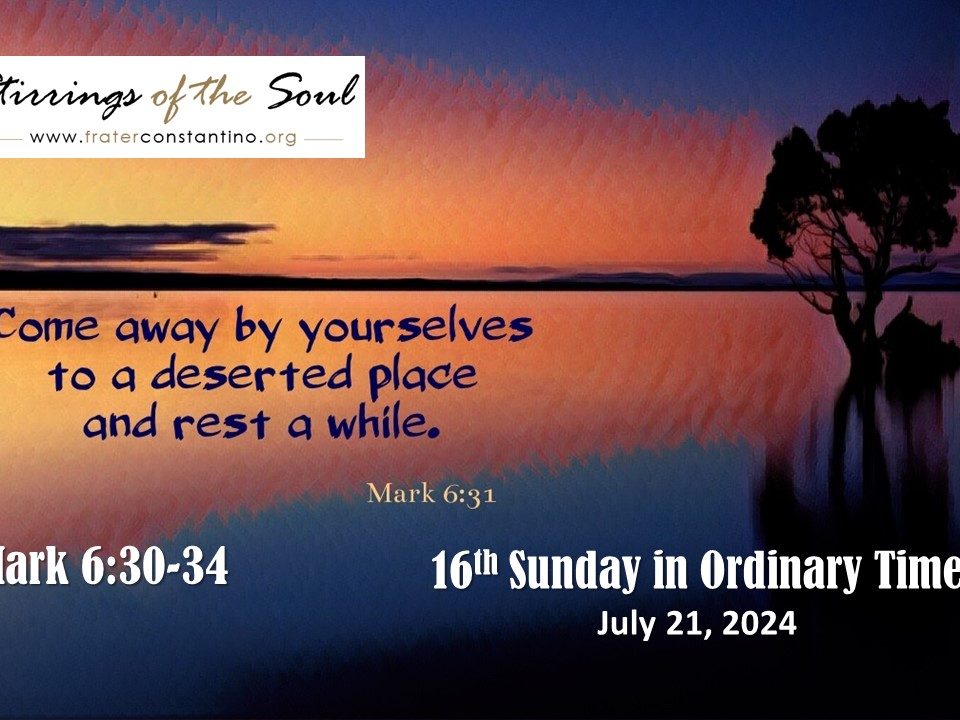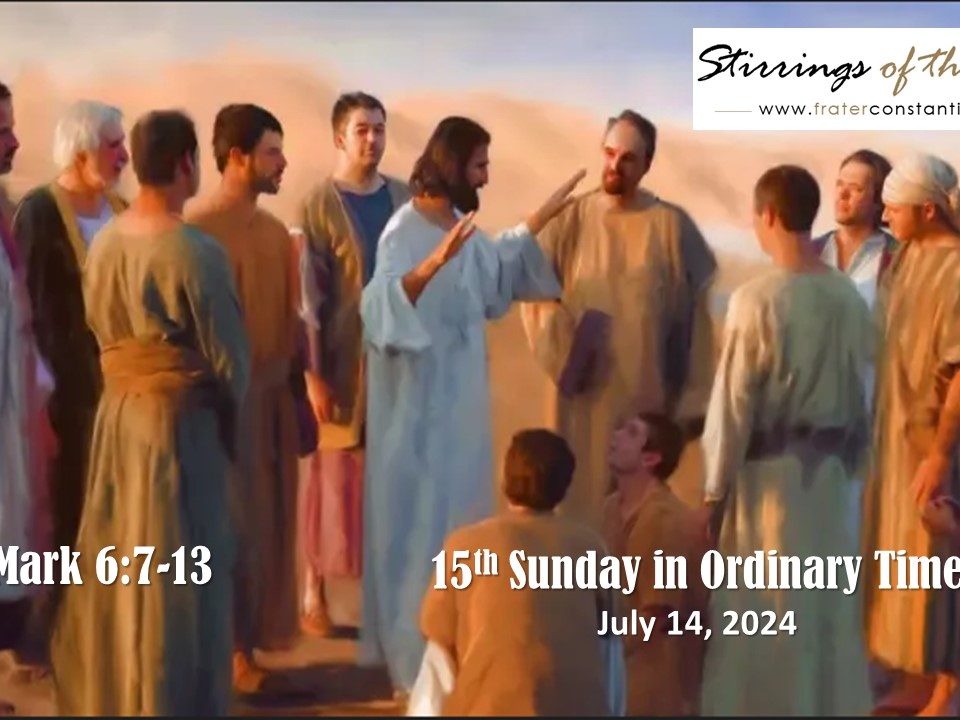Luke 9:23-26 – Feast of the Stigmata of Our Holy Father Francis

Luke 7:31-35
September 15, 2020
Luke 7:36-50 24th Week in Ordinary Time
September 15, 2020Luke 9:23-26 – Feast of the Stigmata of Our Holy Father Francis
September 17 – Feast of the Stigmata of Our Holy Father Francis
Galatians 6:14-18
Luke 9:23-26
From the very beginning of his conversion Francis has always loved and has never ceased to venerate the Christ crucified or the crucifix so that on the year 1224 a great miracle was marked on his body known as the stigmata. Francis bears the wounds of Jesus on the cross as a great gift of God for his love and devotion to Christ Crucified. From then on, Francis has always been aglow with such a seraphic love in his soul.
A. Text/Context
- The gospel for today’s feast teaches us about the carrying of the cross which is actually discipleship and it means following Jesus which entails self-denial and self-sacrifice
- And Jesus tells us that there is no other way to follow him except self-denial and self-sacrifice
- That is why Jesus enumerated the requirements of discipleship to the people: Whoever wishes to come after me must deny himself, take up his cross and follow me
- This is discipleship or the faithful following of Jesus in general. The following of Jesus in whatever state of life we are in
- We are called to live a life of discipleship according to the demands of the status of life where we belong
- Jesus said: Whoever wishes to save his life will lose it. What does it mean?
- It means that a life that is lived in self- centeredness and in denial of Christ ends in the destruction of the soul of the person
- A life that centers on the self that does not care for the needs of others will end up in ruins because selfishness is only taking care of your own self
- Selfishness does not result to any merits for our own souls. If you only think of yourself you will also lose your own soul
- And Jesus also said: But whoever loses his life for my sake and that of the gospel will save it
- What does it mean? It means that a life that is lived in loyalty to Christ, despite an earthly death arrives at the fullness of life
- A life lived in caring for others will end up to a life eternal
- This sounds highly theological for married people, your faithfulness to your wife as a husband, your fidelity to your husband as a wife, and doing the holy tasks demanded of you as a family, as parents to your own children. Marriage is discipleship in itself
- Discipleship is expressed in the obligations that you have to fulfill as a single man or woman before marriage, or if you opted to remain single in your entire life. Single blessedness is also discipleship
- Single men and women enjoy more freedom to exercise discipleship because they are free from the burdens of home and family. Quite a number of saints in our church never get married to live a life of sanctity and holiness
- Discipleship is a life of consecration with the Lord, following the rules and constitutions of a sacred order or congregation. Consecrated life is discipleship
- These are the people who opted to become priests, sisters, brothers and the religious who prostrate themselves before the altar of God and made their vows of poverty, chastity, and obedience
B. Human Situation
- So in the end, discipleship or following Jesus spares no one in exemption by carrying the cross or bearing the marks of the cross in our heart and in our soul
- God gave St. Francis the marks of the wounds of the cross in his body through the stigmata
- Francis may have the external signs of the stigmata by bearing the wounds of Jesus on his own hands, on his feet and on his side, but the more important part is really the interior miracle that left the heart of Francis aglow with love and devotion to God and to others until the last breath of his life
- Just like Francis, everybody is called to love one another, a life of faithfulness or fidelity, married or single, priests or religious, man or woman, young or old
- Everybody is called to become a faithful and sincere disciple of Jesus wherever we are, whatever we do.
- A true disciple will always carry a cross. Somehow in the exercise of our work, and profession even if we love our work so much you will always carry a cross
- We do not blame others for our miseries, we do not make others guilty because we suffer
- Sufferings and sacrifices are examples of the cross that we carry. Nobody wants to carry a cross for sure but oftentimes we have no choice
- The cross that we carry may come in different forms: our liabilities, our weakness, our dark past, a horrible experience, or a sad moment. The cross that we carry is the wound and pain that we experience
- But the cross is not always heavy to carry if the wounded part of our self is already healed and we have accepted them and we will have a happy disposition in life
- We continue to be haunted, we continue to feel the pain, and we continue to blame others if we cannot accept our own cross leading to a life of wretchedness. We have to let go of all those pains, once they’re gone we will be happy
- It is already useless that we continue to lament on all those painful segments of our life in the past. We must accept the pain of such reality
- When acceptance happens, this is now the time that the cross becomes easy to carry, the time when sacrifices turn into joy. The time when we will be happy carrying the cross on our shoulders.
- With the pain of acceptance, recovery follows and you will be happy in the end because you are no longer haunted by a dark past.
C. Challenge
- This is the challenge that the gospel brings us today
- The cross that we carry no matter how heavy, God will also help us carry it
- The cross that we carry will not always remain heavy because sacrifices will also turn into joy
- With that we carry the marks of the cross in our heart with love and joy just like what St. Francis did
- We carry the unseen signs of the stigmata in the faithful following of Jesus through the mark of love in our heart




